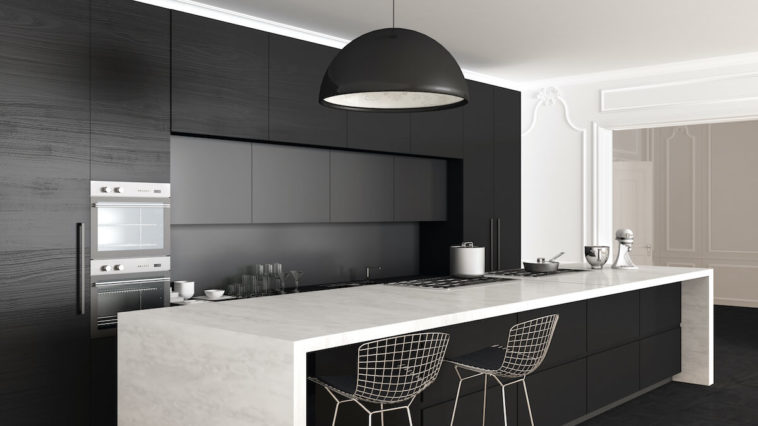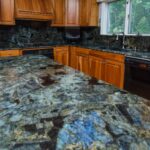Quartz countertops have become increasingly popular in recent years as a durable and stylish option for kitchens and bathrooms. However, choosing the right quartz countertop thickness can be a daunting task for homeowners. In this article, we’ll explore the importance of quartz countertop thickness and how to choose the best option for your needs.
Why Quartz Countertop Thickness Matters
Quartz countertops Quartz countertops have become increasingly popular in recent years due to their durability, low maintenance, and aesthetic appeal, with the thickness of quartz countertop being a key factor in their selection. However, when it comes to choosing the thickness of your quartz and granite countertops, there are several factors to consider. In this article, we will explore why quartz countertop thickness matters and how it can impact the overall look and functionality of your space.
Aesthetics and Design
As mentioned, quartz countertops are available in a variety of thicknesses, each with its own unique aesthetic and design. Thicker countertops, typically ranging from 2 to 3 centimeters, can create a bold and luxurious look, making them a popular choice for high-end kitchens and bathrooms with natural stone aesthetics. Thinner countertops, on the other hand, ranging from 1 to 1.5 centimeters, can be more elegant and streamlined, making them a great choice for modern and minimalist designs. When choosing the thickness of your quartz countertops, it’s important to consider the overall design of your space and how the countertops will fit into that design, potentially consulting a guide to countertop thickness for best results.
Durability and Strength
Another important factor to consider when choosing the thickness of your quartz countertops is its durability and strength. Thicker countertops tend to be more durable and can withstand more wear and tear over time. This is especially important in high-traffic areas such as kitchens and bathrooms, where the countertops are exposed to constant use and potential damage. Thicker countertops also tend to be less prone to cracking and chipping, which can be a concern with thinner countertops, highlighting the importance of selecting the right quartz countertop thickness. However, it’s important to note that thinner countertops can still be durable when properly installed and maintained.
Cost Implications
Finally, the thickness of your quartz countertops can impact the cost of your installation. Thicker countertops require more material and can be more expensive to install than thinner countertops. However, thicker countertops can also increase the value of your home, making them a wise investment in the long run. It’s important to weigh the cost implications against the benefits of each thickness option, including the right quartz countertop thickness, to determine which is the best fit for your budget and needs.
In conclusion, the thickness of your quartz countertops, a key countertop material, is an important consideration when designing and installing your kitchen or bathroom vanities. By taking into account the aesthetics, durability, and cost implications of each thickness option, you can choose the best fit for your space and enjoy the benefits of beautiful, functional, and long-lasting countertops.
Standard Thickness Options for Quartz Countertops
Quartz countertops are a popular choice for homeowners and designers alike due to their durability, low maintenance, and aesthetic appeal, rivaling other materials like granite and offering various options in thickness of quartz countertops and edge profiles. When choosing the right thickness for your quartz countertops, it’s important to consider factors such as traffic, wear and tear, and budget. Here are some more details about the standard thickness options available:
1cm (3/8 Inch) Thickness
As mentioned, 1cm (3/8 inch) is the thinnest option available for quartz countertops. While it may be more affordable, it’s important to consider the long-term durability of this option before making a decision, especially when selecting the thickness of a quartz countertop. This thickness is best suited for areas with low traffic and minimal wear and tear, such as a guest bathroom or a bar area. However, the right quartz countertop thickness may not be suitable for a busy kitchen or a bathroom used by multiple people on a daily basis.
2cm (3/4 Inch) Thickness
2cm (3/4 inch) is one of the most popular thickness options for quartz countertops. This thickness strikes a balance between affordability and durability, making it suitable for most kitchen and bathroom designs and often recommended in guides to countertop thickness. However, it’s important to consider the weight of this option when installing it on cabinets or other structures. Depending on the size of your countertop, the weight of a 2cm quartz slab, a common choice for kitchen countertops, can range from 100 to 200 pounds.
3cm (1 1/4 Inch) Thickness
3cm (1 1/4 inch) is the thickest option available for quartz countertops, representing the best countertop thickness for durability and visual appeal. This thickness is best suited for high-traffic areas that require more durability and strength, such as a commercial kitchen or a family bathroom, making it the right quartz countertop thickness for such applications. While it may be more expensive, it’s also the most long-lasting option available. In addition to its durability, a 3cm quartz slab also offers a more luxurious look and feel compared to thinner options, making it the best countertop thickness for those seeking quality and style.
When choosing the right thickness for your quartz countertops, it’s important to consider your specific needs and preferences. While a thinner option of countertop material may be more affordable, it may not offer the durability and strength you need for your space. On the other hand, a thicker option may be more expensive, but it can offer a more luxurious look and feel as well as long-lasting durability. Ultimately, the choice is yours.
Factors to Consider When Choosing Quartz Countertop Thickness
Quartz countertops are a popular choice for kitchens and bathrooms due to their durability, low maintenance, and aesthetic appeal, with various options in counter thickness enhancing their versatility. However, choosing the right thickness for your countertop can be a daunting task without a proper guide to countertop thickness. Here are some factors to consider when making your decision:
Kitchen Countertops Layout and Design
The layout and design of your kitchen or bathroom can play a significant role in determining the thickness of your countertop, making it essential to consider the best countertop thickness during the planning phase. quartz countertops. For example, if you have a smaller or more compact space, choosing the right quartz countertop thickness is crucial as thicker countertops may not be suitable as they can make the area feel cramped and affect the overall kitchen countertop design. On the other hand, if you have a more open or spacious area, thinner countertops may look out of place and fail to make a visual impact, demonstrating the importance of choosing the right counter thickness. It’s important to choose a thickness that complements your space and enhances its overall design.
Installation and Support Requirements
The thickness of your quartz countertops can also impact the installation and support requirements, underscoring the importance of consulting a guide to countertop thickness. Thicker countertops may require additional support structures to prevent sagging or cracking. This can add to the cost and complexity of the installation process. It’s important to consult with a professional installer to determine the best thickness option for your space, taking into account factors such as the size and shape of your countertops, the weight of the quartz, and the type of cabinetry or support structures in place.
Budget Constraints
As with any home renovation project, budget is always a consideration when choosing the thickness of your quartz countertops. While thicker options may be more durable and resistant to wear and tear, they can also be more expensive. Thinner countertops may be a more cost-effective option, but may not offer the same level of durability or aesthetic appeal, highlighting the need for a balance in counter thickness. It’s important to find a balance between cost and quality when making your decision, and to consider the long-term value of your investment in kitchen countertop thickness.
In conclusion, choosing the right thickness for your quartz countertops requires careful consideration of a range of factors, from the layout and design of your space to the installation and support requirements, and your budget constraints. By taking the time to evaluate these factors and consult with a professional installer, you can ensure that your new countertops, whether quartz or granite, meet your needs and exceed your expectations.
Conclusion
Choosing the right thickness for your quartz countertops is an important decision that can impact the overall look, feel, and durability of your space. It’s important to consider factors such as design, durability, and budget when making your decision. By doing so, you can ensure that your quartz countertops, a durable natural stone, will look beautiful and function properly for years to come.



